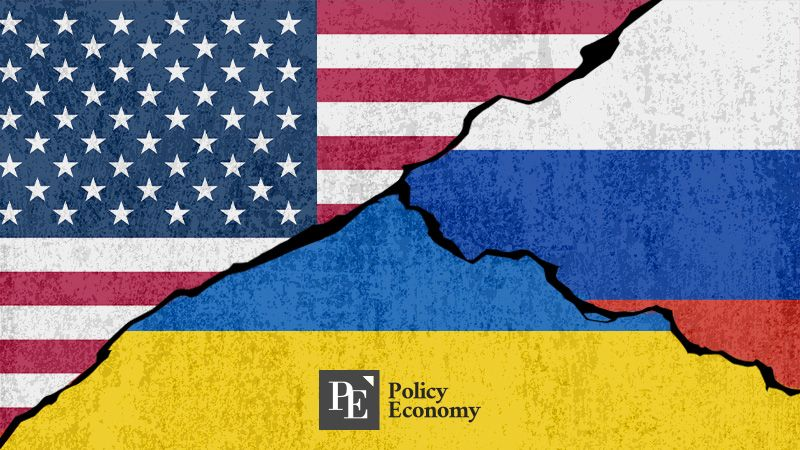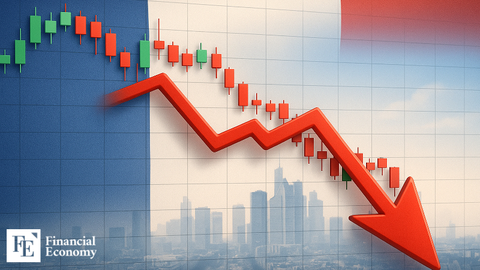Ukraine Signs Minerals Agreement with U.S., Focusing on Reconstruction Aid and Strategic Resource Security
Input
Modified
Trump: U.S. to Sign Mineral Agreement with Ukraine on the 24th Goal: Secure Critical Minerals to Offset War Aid Costs Deal Gives U.S. Firms Priority Access—May Breach EU Law

The United States is moving forward with a minerals agreement with Ukraine to jointly develop rare earths and other strategic resources. In exchange for postwar reconstruction investment, the deal is widely seen as a strategic move by the Trump administration to recoup its support for Ukraine through tangible economic returns. As potential conflicts with the European Union’s interests emerge, the race for access to Ukraine’s natural resources is entering a new phase of intensifying global competition.
Memorandum of Understanding Signed Ahead of Formal Mineral Agreement
On April 17 (Korea time), Ukraine’s First Deputy Prime Minister and Minister of Economy Yulia Svyrydenko announced via X (formerly Twitter) that she had signed a Memorandum of Intent (MoI) with the United States as an initial step toward a broader mineral development agreement. “The MoI paves the way for a strategic economic partnership with the U.S. and the creation of an investment fund for Ukraine’s reconstruction,” she said. “We hope the fund will become an effective tool for rebuilding infrastructure and attracting new economic opportunities.”
President Donald Trump confirmed that a formal mineral agreement is expected to be signed on April 24, telling reporters after his summit with Italian Prime Minister Giorgia Meloni that “we’re working on a minerals deal, and we believe Ukraine will follow through.” However, Treasury Secretary Scott Besant, leading the negotiations, mentioned April 26 as a more realistic target, suggesting the final signing date remains flexible.
While full details of the MoI have not been released, Ukrainian officials indicated that the agreement includes a provision to allocate 50% of revenues from government-owned mineral resources—such as rare earths—into a joint fund, and that U.S. assistance would not be treated as debt. The forthcoming agreement is expected to give the U.S. access to Ukraine’s strategic minerals in exchange for reconstruction aid and private sector investment—part of a broader strategy by the Trump administration to recover wartime support funds through economic returns.
Failure to Comply with EU Competition Law Could Hinder Ukraine’s Accession Prospects
As the U.S.-Ukraine mineral deal gains momentum, the European Union has raised concerns that preferential treatment for U.S. companies could breach EU competition laws. Svitlana Taran, a researcher at the European Policy Centre (EPC), noted that the draft agreement includes provisions for U.S. companies to receive legally guaranteed “first-offer rights”—which directly conflict with the EU’s principles of equal access and non-discrimination in public procurement.
According to reporting by the Financial Times and Bloomberg, the U.S. draft includes clauses granting Washington broad control over Ukraine’s natural resources through a reconstruction investment fund. Notably, the draft proposes that three out of five board members overseeing the fund would be appointed by the U.S., granting it effective veto power over new mining projects. If the board declines a project, Ukraine would be prohibited from offering the project to alternative partners with better terms.
Taran warned that, as a candidate for EU membership, Ukraine must demonstrate compliance with the EU’s single market and fair competition regulations. “Ukraine’s path to membership requires structural reforms, including adherence to public procurement rules,” she said. “Unless these provisions are revised, EU accession could be jeopardized.”
Development of Rare Earth and Strategic Mineral Projects Takes an Average of 18 Years
The U.S.’s interest in Ukraine’s mineral wealth stems from its abundant reserves of rare earths and other strategic resources. A 2023 report by Ukraine’s Geological Service and Ministry of Environment found the country holds roughly 5% of the world’s key critical minerals, including 7% of global titanium reserves and an estimated 500,000 tons of lithium—a crucial element for electric vehicle batteries. However, only six titanium mines are currently operational, and Ukraine has no active lithium mining operations.
According to the U.S. Geological Survey (USGS), 22 of the 50 minerals deemed “critical to the future economy” are found in Ukraine. Trump’s urgency to secure a minerals agreement reflects these geostrategic stakes. The EU, too, has sought access, signing a strategic partnership agreement with Ukraine on mineral development in 2021 as part of its effort to reduce dependence on Chinese supplies.
Still, there are doubts about the economic feasibility of rapid development. Standard & Poor’s reports that, globally, the average time from mineral discovery to operational mining is 17.9 years. Complicating matters, two-thirds of Ukraine’s electricity infrastructure has been damaged or destroyed by Russian attacks, posing a major challenge for mineral extraction, which requires vast amounts of power.
The U.S. Institute of Electrical and Electronics Engineers (IEEE) criticized Trump’s push, saying, “The president appears to be approaching this from a businessman's perspective—chasing a good deal without fully understanding the complexity of critical minerals.” Some observers suggest the final agreement may be little more than a symbolic memorandum of understanding, rather than a binding economic framework.





















